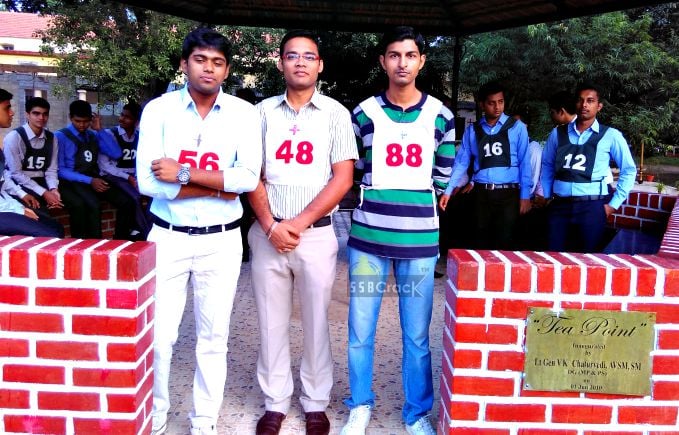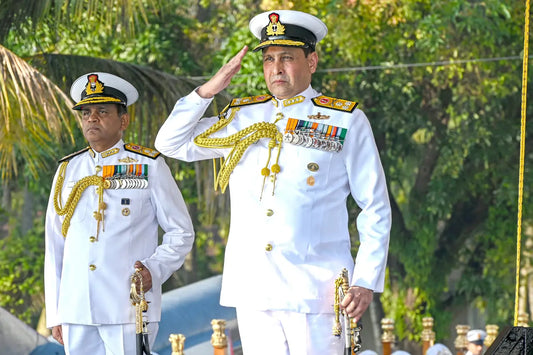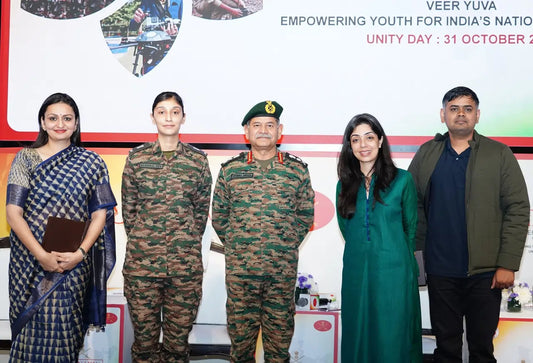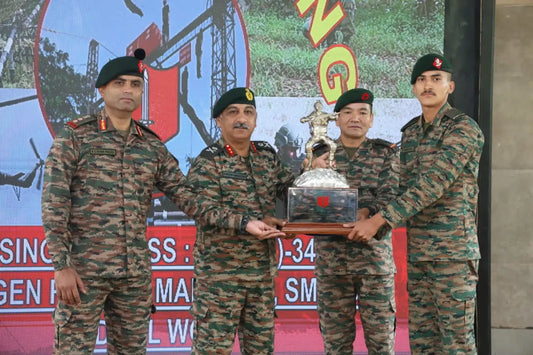Mastering SSB Interview Preparation: 10 Essential Tips for Success

Understanding the Services Selection Board (SSB) interview process is essential for candidates aspiring to join the Indian Armed Forces. Known for its stringent selection criteria, the SSB interview evaluates a candidate's mental strength, leadership abilities, and personal characteristics. Although some candidates choose formal coaching to tackle this demanding process, effective self-preparation is indeed possible. This article outlines ten practical tips based on expert guidance and strategies to help candidates succeed in the SSB interview independently.
Understanding the SSB Procedure Thoroughly
Before embarking on preparation efforts, candidates must become thoroughly acquainted with the SSB interview's five-day structure. This comprehensive process includes:
- Screening Tests: Conducted on the first day, these tests include the Officer Intelligence Rating (OIR) test for mental aptitude, and the Picture Perception and Discussion Test (PPDT), where candidates analyze and discuss a given picture.
- Psychological Tests: A series of tests such as the Thematic Apperception Test (TAT), Word Association Test (WAT), and Situation Reaction Test (SRT) assess different psychological traits, providing insights into the candidates' thought processes and emotional responses.
- Group Tasks: Involving various group activities, these tasks evaluate teamwork, leadership, and decision-making skills through obstacle courses, group discussions, and problem-solving exercises.
- Personal Interviews: Conducted by assessors, these interviews delve into a candidate's personal history, motivations, and reasons for wanting to join the Defence forces.
- Physical Fitness Assessments: Critical to the selection process, these assessments include obstacle races and other physical challenges to test a candidate’s endurance and strength.
Familiarity with these components allows candidates to tailor their preparation effectively, enhancing confidence throughout the process. By creating a comprehensive checklist covering all aspects, candidates can ensure targeted and effective preparation.
Create a Structured Daily Routine
Developing a structured daily routine is crucial for instilling discipline and maximizing productivity. Candidates should balance their schedule with:
- Physical Fitness: Dedicate daily time to physical training, focusing on endurance, strength, and flexibility, which not only prepares candidates for the physical tests but also improves overall health.
- Current Affairs Study: Regularly read newspapers and follow credible news sources to stay informed on national and international developments, aiding in discussions and interviews.
- Psychological Test Practice: Practice TAT, WAT, SRT, and PPDT regularly, either individually or in groups, to build instinctive and positive thinking skills necessary for psychological evaluations.
- Personal Reflection and Relaxation: Set aside time for introspection to assess strengths and weaknesses, fostering authenticity during interviews.
Research suggests that candidates following a structured approach enjoy a 25% higher success rate. Such discipline not only enhances preparation but also instills the Officer-Like Qualities (OLQs) valued by selectors.
Physical Fitness and Stamina
Physical fitness is a vital component of the SSB interview process. Regular exercise serves multiple functions:
- Confidence Building: Enhanced physical fitness boosts self-esteem, presenting candidates more favorably in group tasks and interviews, which often correlates with positive outcomes.
- Endurance for Physical Tasks: Many candidates find physical tasks challenging. Incorporating agility exercises, strength training, and cardiovascular workouts can improve stamina and performance.
- Stress Relief: Engaging in regular physical activity promotes mental clarity and reduces stress, helping candidates approach the interview process with calmness and composure.
A comprehensive fitness regime should include aerobic exercises for endurance, strength training for muscle resilience, and flexibility workouts like yoga to enhance agility and calmness.
Improve Communication Skills
Effective communication is crucial for success in the SSB interview. Candidates can improve their skills by:
- Daily Speaking Practice: Engage in conversations, practice speaking aloud, or rehearse in front of a mirror to build fluency and articulation, vital for group discussions and interviews.
- Mock Group Discussions: Practice group discussions with peers to understand the dynamics of valuing diverse opinions while articulating thoughts effectively. Discussing current topics broadens knowledge.
- Listening Skills: Effective communication requires attentive listening, fostering empathy and enabling thoughtful responses.
Statistics show that effective communicators leave a favorable impression on assessors, helping candidates build rapport and present well-thought-out ideas clearly and effectively, a key selection criterion.
Stay Updated with Current Affairs
Keeping abreast of current affairs is essential for group discussions and interviews. Candidates should allocate time daily to:
- Reading Newspapers: Read reputable national and international newspapers such as The Hindu, Times of India, or The Indian Express, along with Defence magazines and journals.
- News Channels: Watch credible news channels or their online platforms for insights on political, economic, and social developments.
- Online Resources: Utilize reputable online news websites and apps for instant updates and analysis.
Well-informed candidates can engage meaningfully in discussions and interviews, showcasing awareness and an analytical approach, both highly valued by selectors.
Practice Psychological Tests Diligently
Understanding various psychological tests is critical:
- Thematic Apperception Test (TAT): This narrative-based test requires candidates to create stories from ambiguous images. Regular practice improves storytelling and creativity.
- Word Association Test (WAT): Candidates respond to words by writing the first thing that comes to mind. Practice enhances quick thinking and the ability to express personal attitudes and feelings.
- Situation Reaction Test (SRT): Candidates react to hypothetical scenarios. Practicing these tests builds instinctive responses reflecting leadership qualities.
Consistent practice enhances critical thinking and improvisation, with candidates who extensively practice often scoring higher in this area. Mock tests using real-life scenarios can also bolster confidence.
Build Self-Awareness and Introspection
Self-awareness is invaluable in the SSB interview, as panels seek authenticity and genuine personas. Building self-awareness involves:
- Regular Reflection: Reflect on personal experiences to identify strengths and weaknesses, aiding in growth and development.
- Seeking Feedback: Request honest feedback from trusted friends or family to gain fresh perspectives and areas for improvement.
- Developing a Personal Brand: Decide how you want to be perceived by others. Identify qualities you want to be associated with, shaping your responses and demeanor during the selection process.
Authenticity, composure under stress, and preparedness are valued by selectors, often distinguishing successful candidates.
Time-Management Skills
Effective time management can significantly impact preparation and interview performance:
- Organized Preparation Schedule: Divide study and practice time effectively among different domains, like physical training, psychological tests, and self-reflection.
- Time-Calibrated Preparation: Break tasks into smaller, manageable goals to meet deadlines without stress.
- Performance Under Pressure: During interviews, time management enables candidates to answer questions without feeling rushed. Practicing mock interviews within set time limits can enhance performance.
Good time management alleviates stress and fosters a productive environment conducive to thoughtful preparation and effective performance during the SSB.
Utilize Reliable Resources
Access to reliable resources can guide self-study efforts effectively:
- SSB Blogs and Websites: Follow trusted platforms like SSBCrack and SSBCrackExams for expert insights, interview strategies, and relevant preparation materials.
- Books on SSB Preparation: Invest in well-reviewed books covering the OIR and PPDT exams comprehensively.
- Online Forums: Join online forums or study groups to simulate the testing environment and share insights with peers.
Organize Your Documents and Planning
Beyond mental preparation, organization is crucial for interview readiness:
- Create a Checklist: Compile a list of essential documents such as call letters, identity proofs, and medical certificates.
- Document Backup: Make multiple copies of key documents, ensuring they meet specific requirements outlined in the interview guidelines.
- Follow Instructions Accurately: Carefully review guidelines for document submission and interview procedures to ensure full compliance and avoid last-minute issues.
An organized approach reduces stress on the interview day, projecting candidates as diligent and prepared in the eyes of assessors.
Conclusion
In summary, with self-discipline, structured preparation, and a thorough understanding of the selection process, candidates can successfully navigate the SSB interview without formal coaching. By applying the ten discussed tips, candidates can enhance their chances of success independently. From communication skills to physical training, each aspect strengthens a candidate's profile, aspiring to serve in the Indian Armed Forces.
Success demands diligence, commitment, and adaptability. Candidates should seize the initiative, harness their potential, and approach the selection process with unwavering confidence. With dedicated self-preparation and a focused mindset, excelling in the SSB interview and joining the Defence services remains a rewarding aspiration within reach.



















